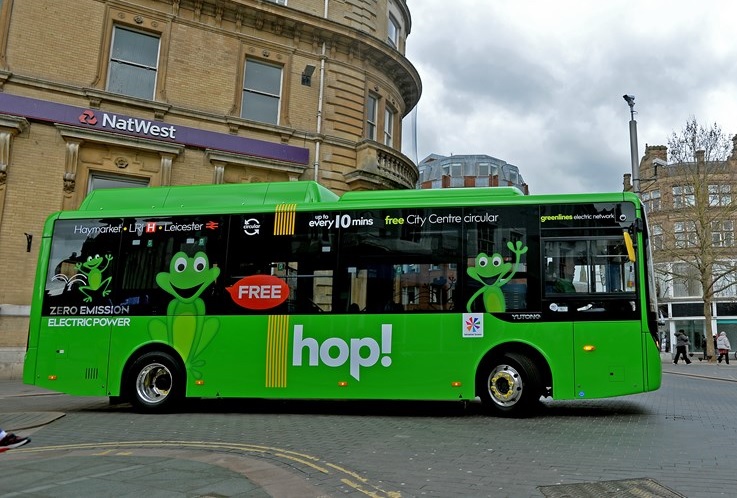Particularly with net-zero targets in mind, the idea of free public transport, including buses, is slowly gaining traction around the world.
While it may seem good news for the public, of course the transport would essentially not be “free” and would ultimately need to be paid for by taxpayers.
Whether making buses free at the point of use is a good employment of public funds, taken from sources such as general taxation or Bus Service Improvement Plan (BSIP) monies, is a point of contention.
In 2020, Luxembourg became the first country in the world to make public transport free. Malta followed suit in 2022. Tallinn, Estonia, made that move in 2013, becoming the first capital city to do so.
Smaller-scale examples, either experimental or longer-term, are understood to be taking place in more than 100 locations around the world.
In particular, there is a movement towards the model in France, with Dunkirk, Montpellier and Aubagne areas to have gone ahead with it and the capital Paris having considered it.
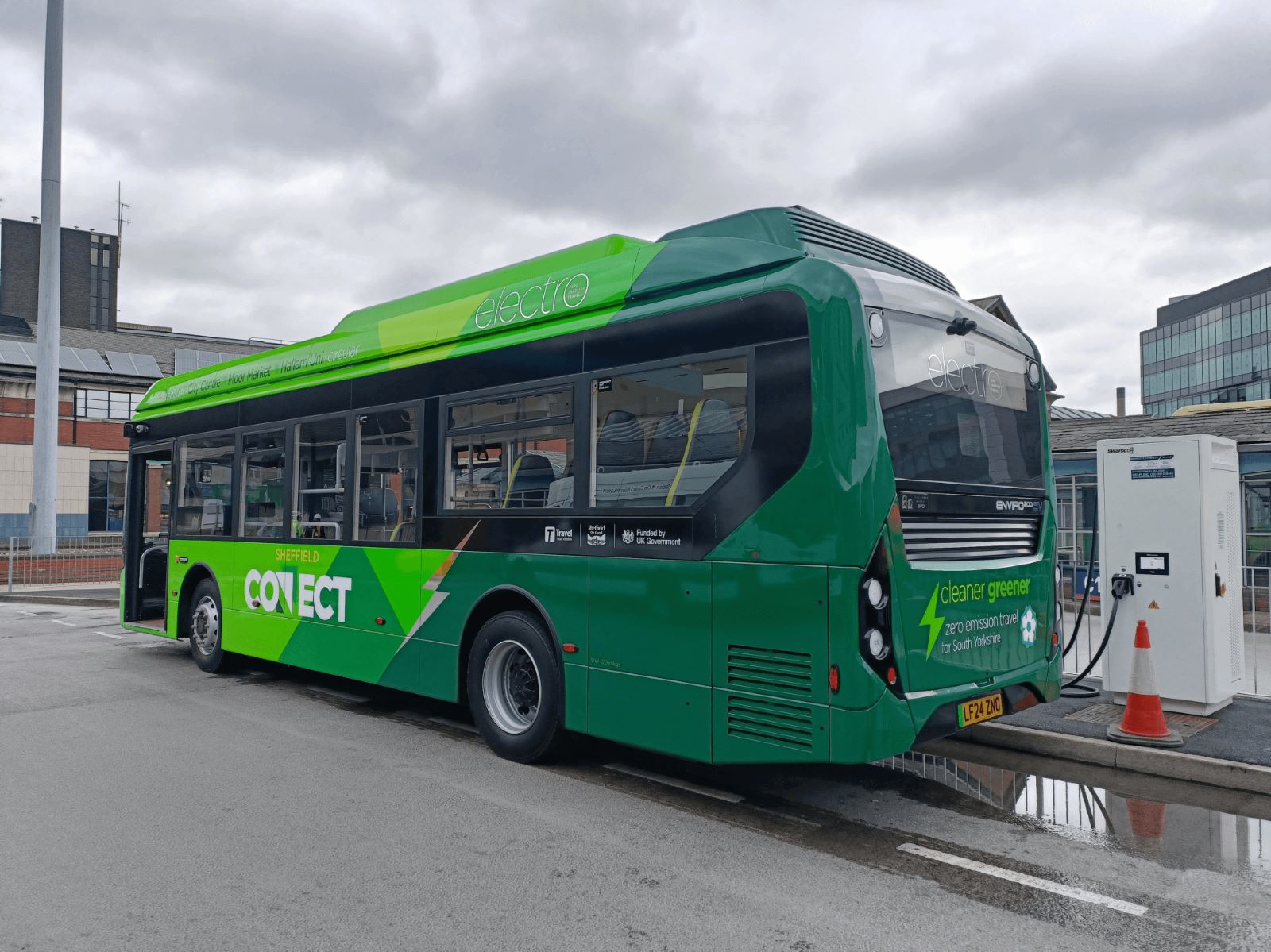
Parts of the UK have also tried no-charge public transport. Manchester, Sheffield, Leicester, Hereford and Dewsbury are current examples of towns or cities with free bus loops.
On a larger scale, Glasgow City Council is seeking funding for a nine-week pilot to offer free bus, train and subway travel in Scotland’s biggest city to 1,000 people. Meanwhile, the campaign Fare Free London to make public transport free in England’s capital has recently begun.
The fors and againsts
One of the obvious goals of free public transport is to reduce emissions from private car usage. If the long-term effect is less reliance on cars, this would clearly be good news for the coach and bus industry.
However, it has been observed that it does not seem to have reduced car use in Tallinn and Luxembourg. In fact, Luxembourg has greater car ownership per capita than the UK.
An independent report commissioned by the National Transport Authority in Ireland concluded free public transport would be “overly costly and incentivise excessive travel” and would lead to just a 1% reduction in car use.
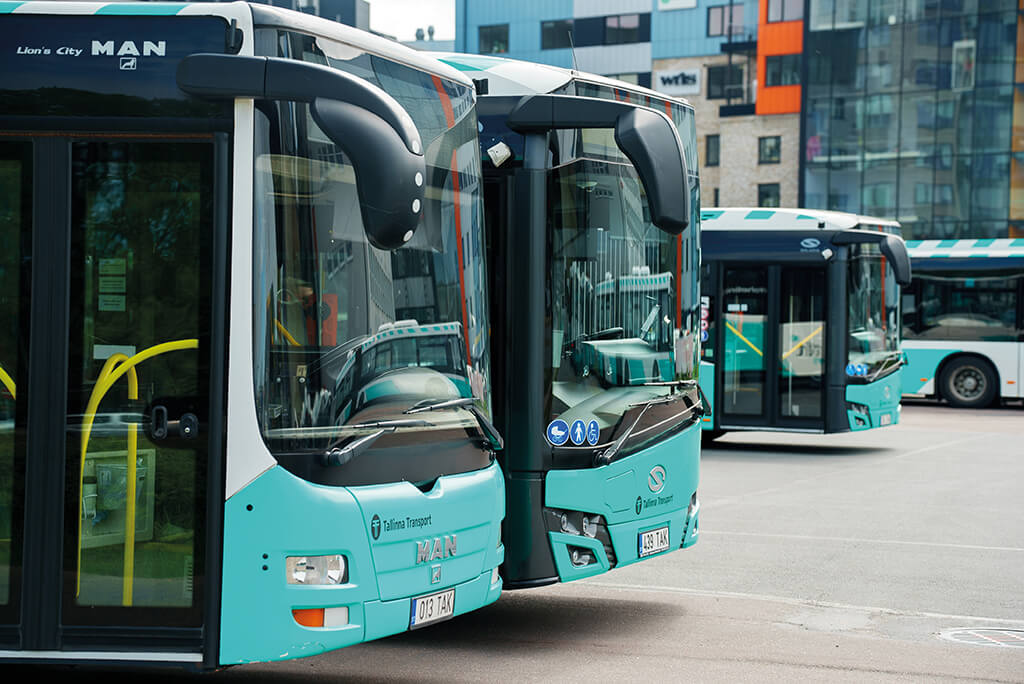
It could be argued, though, that it would take many years to change the transport habits of a population. Further, excessive travel would be welcomed by the industry, of course.
Other negatives put forward, such as the detrimental effect on the car industry and related jobs, may be of less concern to the coach and bus sector.
It could be that some form of middle ground is the answer.
Scotland has made bus travel free for under-22s, while other areas of the country have removed or are planning to remove fares for the young in the hope that more of the next generation don’t learn to drive.
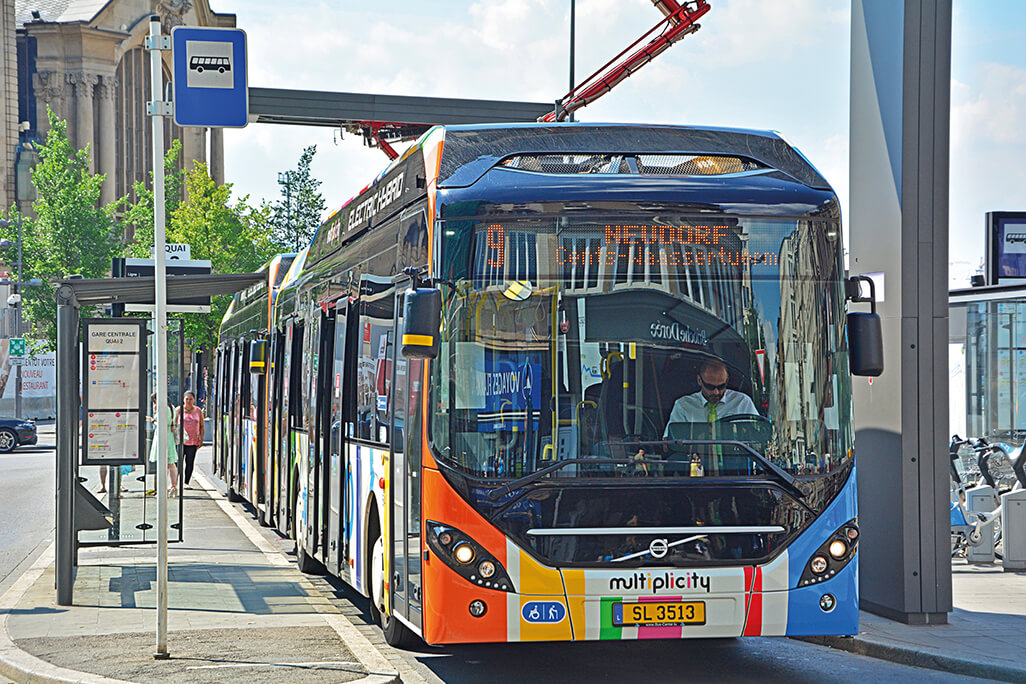
Meanwhile, Germany allows unlimited use of local public transport for €49 per month.
In addition, limited networks of free buses could entice those who would not normally consider public transport or could generally reduce reliance on a car.
Success with Leicester’s Hop!
One such example is Leicester’s Hop! service. This began in spring 2023, offering free battery-electric buses every 10 minutes around the city centre, paid for by the Department for Transport’s (DfT) Transforming Cities Fund and operated by Centrebus.
It has been branded a success, with usage rising to more than 10,000 passenger trips per week, but local authorities need to think very carefully about using public funds on free buses, according to Andrew Gibbons, Leicester City Council (LCC) Programme Manager (Buses).
Free buses are not a one-size-fits-all solution – Andrew Gibbons
Andrew, who has more than 40 years’ experience in the industry, including with bus operators, DfT and local authorities, says: “I’m not saying free buses are a blanket solution for everywhere, but you can see here we have pretty high numbers.
“I think you need to be very careful on the route.”
When it comes to the route, Andrew points out the Hop! buses run anti-clockwise to eliminate right-hand turns which could add to journey time.
He adds: “Free buses are not a one-size-fits-all solution. It will be dependent on what your existing road layout is, where your services are located and what your base commercial network is like.
“I think it probably is a good use of BSIP money, particularly if it’s linking in and helping the existing bus network, but it has to be complementary to that network.”
The loop route for Hop! is relatively small so it could be argued that the free buses are replacing walking trips to an extent, but there is evidence that car use may be being reduced.
LCC’s survey indicates that 10% of trips on Hop! would previously have been taken by car and 4% by taxi.
Better connections in Hereford
Hereford City Council (HCC) launched its free bus service, Zipper, in November 2023, paid for by the government’s Stronger Towns Fund.
As with Leicester’s Hop!, it is run via three Yutong E9 midibuses.
It came in response to consultation with the public, who expressed the desire for the funding to be put to free travel.
Operated by Yeomans Travel, it registered 30,000 passenger trips in its first four months, surpassing all expectations of the Council.
As with Leicester, the principal aim was to link up the key sites in the city centre to make transportation easier for the public, making sure not to compete with existing commercial services.
Echoing the idea that such free buses suit some conurbations more than others, it seems the Council recognised a need there.
Paul Stevens, Chair of the Policy and Resources Committee, HCC, says: “What we looked at was city centre connectivity that wasn’t happening with the existing bus services.
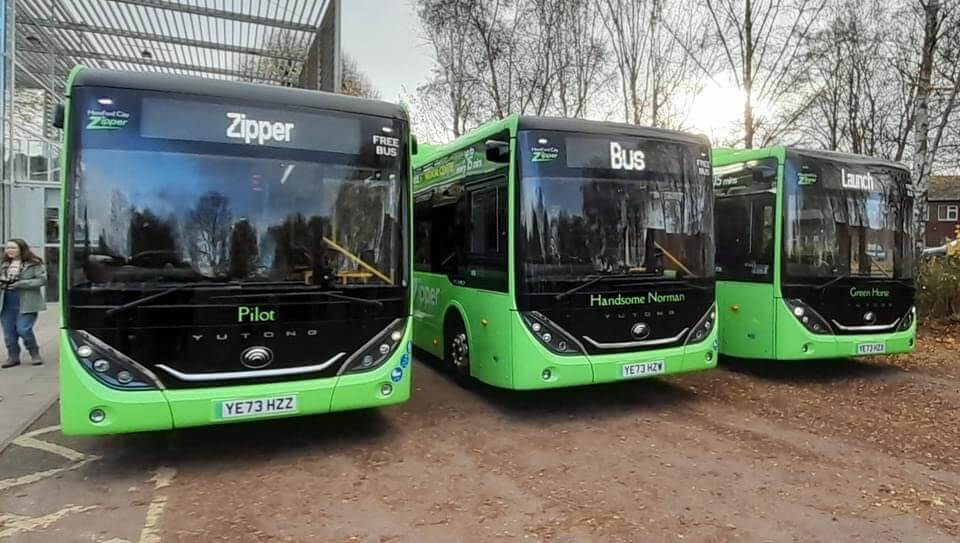
“There was a new link road that wasn’t on the bus routes and also the medical centre just wasn’t being serviced.
“That was the catalyst to get that done, as well as moving people from north to south and circulating around the city centre.”
The service has enough funding to last for three years, but whether it will continue beyond that remains to be seen.
Paul says: “Everybody on the Council is on board with it at the moment. We will keep it free as long as possible. But it might be the case that we have to do a minimum charge of £1.”
Connor Powell, HCC Tourism and Communications Manager, points out that some of the public expenditure for free buses could be recouped by increased footfall in the city.
“There’s always that argument that it brings more people in because the ease of access is there,” he says. “So, whether it financially spreads itself out is also another factor.”
Opinions vary
Fare Free London has called on the Greater London Authority to make public transport free in London and the government to change financial rules so that local authorities around the country can do it.
Making the case for it, the campaigners say that free public transport is socially just and would cut down on road congestion and emissions.
They argue that some of the funding would come from reversing years of national and local government subsidy for private vehicle use.
Making buses more convenient and easier to use is an important start – Emily Turner
Of course, the worth of free public transport may be very different for somewhere like London, which has an excellent network beyond buses, to elsewhere in the country.
That is a point made by Emily Turner, a bus travel enthusiast who went from Land’s End to John O’Groats by bus and from London to Scotland on only £2 fare-capped services.
The London-based writer says of the idea of free buses: “I can’t imagine it’s a convincing argument if your town is only served by one bus every two hours and the last bus is at about 6pm.”
It could be argued that the UK’s relative lack of extensive tram and underground networks works against the notion of free buses because nowhere can match the overall public transport offering in England’s capital which makes so many decide they do not need a car.
Emily adds: “My instinctive response is, definitely, let’s make all public transport free at the point of use.
“However, I think that would require such a massive societal shift in the way we view transport and, as an ex-teacher, I’ve seen how disastrously underfunded free-to-use services like education are and I’m not sure that would go particularly well.”
As someone who has free travel due to a partner who works for Transport for London, she points out the effect that free travel has had on her own habits.
She says she will jump on a bus for a few stops instead of walking 12 minutes to a tube station and she sees similar when children take advantage of free travel. “Is this actually an effective use of transport capacity?” she asks.
What is more crucial than cost is convenience, she suggests. “I think, even with the £2 fare cap, bus travel just needs to be more convenient,” she says.
“Just tap on instead of having to get the driver to print out a ticket if they’re all £2 anyway. Have more weekend services. Make the timetables, routes, and system in general easier to understand.
“People are choosing their cars for convenience not cost — so making buses more convenient and easier to use is an important start.”
Tom Forth, who is Head of Data at Open Innovations in Leeds, suggests similar.
As someone who has worked with local authorities to try to help advise on successful bus services, he says: “My feeling is that the reason you would want a free bus is you’ve arrived in a city and the transport system is so hard to use and buying a ticket is so difficult that you’ve got to have some option that people are willing to use.
“The problem is it’s too hard to use a bus and then the solution is we’ll have a free bus, then.
“But I feel like free buses are solving a problem in almost completely the wrong way. It’s not how I would be choosing to use my subsidy if I were a local authority.”





















